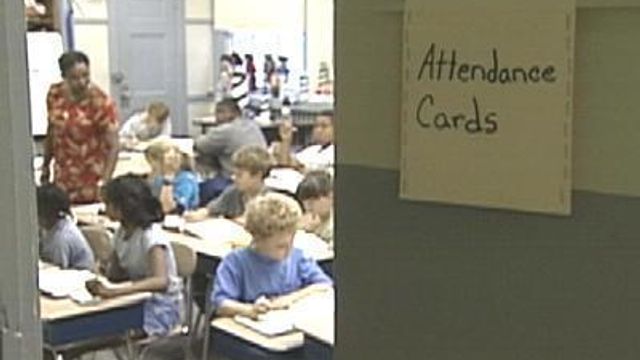Accreditation agency to review Wake schools
AdvancED, a national and international education accreditation organization, plans to send a team to Wake County this fall to review planned changes to the public school system's student assignment policy.
Posted — UpdatedAdvanceED said in a letter last month to the Wake County Public School System that it wants to determine whether the changes are negatively affecting the ability of schools to meet standards.
The agency is asking for details about the district’s controversial proposal to move away from a decade-old policy of busing students for the purposes of diversity toward community-based schools.
The review, which will be sometime between Sept. 1 and Oct. 15, comes in response to a complaint filed in March by the North Carolina chapter of the NAACP, which has accused the school board of harboring “racist attitudes,” something board members have denied.
The NAACP has been among a number of community groups opposed to the school board's assignment policy change.
Opponents fear it will lead to re-segregation, high teacher turnover and poor students receiving a lower quality of education than their economically advantaged counterparts.
Five of the school board's nine members disagree and believe the move, still months away, will help improve test scores and give parents more chances to be involved in their students' education.
School board Chairman Ron Margiotta had no comment Tuesday, saying, "As far as a game plan, right now, there's none whatsoever."
"We have to meet to discuss the issue. At this point, I don't have a sense of urgency," he said. "We're trying to address other matters first."
Wake schools spokesman Michael Evans said the district is compiling documentation for AdvanceED and cooperating with the review.
"We take it seriously, because people know what Wake County schools stands for when a student graduates from one of our schools," Evans said. "We need that diploma to mean something. We need it to make a difference in that child's life as they move forward."
Jennifer Oliver, a spokeswoman for the Southern Association of Colleges and Schools, a subdivision of AdvancEd, said the review isn't about school performance but about governance and leadership.
If the school system is found to be in violation of SACS standards and doesn't comply to them, each of Wake County's 24 high schools could eventually lose their accreditation.
How that affects students applying to colleges and universities could depend on where they apply.
Officials at several local colleges and universities say there are a number of determining factors in student acceptance – ranging from student grades and test scores to campus and community involvement – but that accreditation is still an important factor for several reasons.
"It alone doesn't determine whether or not we accept someone," said Christof Guttentag, dean of Duke University's undergraduate admissions. "On the other hand, if a school is not accredited, it could reflect that they may not have the resources to provide a student with the education to make them competitive for a school like Duke."
The undergraduate admissions policy at the University of North Carolina at Chapel Hill, however, states that a candidate must have graduated from an approved or accredited secondary school.
Steve Farmer, associate provost and director of undergraduate admissions, says it's possible that the university would offer admission but that it's fairly rare to see a candidate, other than home-schooled students, attending a non-accredited high school.
Farmer also said accreditation is not the only information about a high school that's available when determining a student's acceptance.
"But it's still very helpful, in that it's a shorthand signal of a school's (or a school system's) commitment both to self-study and to external evaluation," he said.
• Credits
Copyright 2024 by Capitol Broadcasting Company. All rights reserved. This material may not be published, broadcast, rewritten or redistributed.





